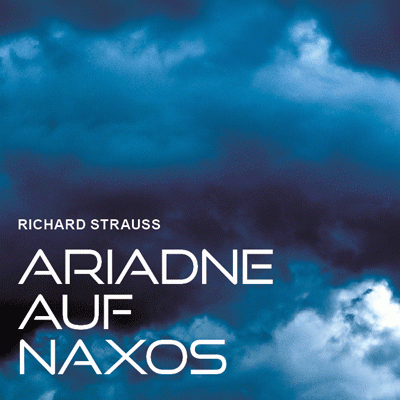
Ariadne auf Naxos
Opera in one act with a prelude
Music by Richard Strauss
Libretto by Hugo von Hofmannsthal
after Molière's "The Citizen as a Nobleman“
Musical direction Alois Seidlmeier
Staging Andrea Raabe
Stage design · costumesJulia Schnittger
Choreography Paz Montero
Dramaturgy André Meyer
Singers of the Institute for MusicTheatre
Haushofmeister Felix Janssen
Ein Musiklehrer Hengli Bao
Der Komponist Mariko Lepage · Carlotta Lipski
Bacchus Lemuel Cuento (a. G.)
Offizier/Scaramuccio Ferdinand Dehner
Tanzmeister/Brighella Wei Liu
Perückenmacher Karl Andrej Beier
Lakai/ Truffaldin Jonas Boos · Hannes Kling
Zerbinetta Yukari Fukui · Sophie Aeckerle
Primadonna/Ariadne Qing Cai · Clara Elies · Xingwei Li
Harlekin Hakyeul Lee · Zafeirios Angelopoulos
Najade Flavia Sciullo · Lina Wagner
Echo Lea Lamparter · Mariia Sytailo
Dryade Gerda Iguchi · Valerie Pfannkuch
Orchestra of the Karlsruhe University of Music
This production is made possible by
A short introduction
A patron has ordered both a comedy and a tragic opera. Arbitrarily, he decides that the performance of both works should take place simultaneously. While the composer of the opera despairs, the comedienne Zerbinetta accepts the challenge and summarizes the following performance: "A princess has been jilted by her bridegroom, and her next suitor has not yet arrived for the time being ... We are a lively company ... as soon as an opportunity presents itself, we appear and mingle in the action."
Ariadne auf Naxos is a tongue-in-cheek gem about the impact of theater and music and the clash between pragmatism and idealism as sources of art production. The opera, in its connection between comedy and tragedy, is also a cipher for the constant transformation of art, which entertains us, is able to give us comfort, or leaves us with unanswered questions. In their interpretation of the myth of Ariadne, abandoned by Theseus, Strauss and Hofmannsthal also take a look at interpersonal issues: In doing so, they create an abysmal play about human loneliness and relationships. Encounters between people can change the individual or bring out their true nature: In the case of Zerbinetta, who plays the superficial comedienne in the performances, the composer discovers her true profound nature in the prelude.
In the following opera, Ariadne believes she recognizes the god of the dead in Bacchus, while he believes he finds his true divine destiny in her. "I am another than I was," he sings. But do the two really change? Don't they just idealize each other to stay with their perspective of things after all? Does a real encounter between Bacchus and Ariadne take place? Strauss and Hofmannsthal evoke questions and possibilities without providing conclusive answers.
Am Schloss Gottesaue 7 · 76131 Karlsruhe
TICKETS
15 € · 10 € (red.)
Advance booking starts on 1 September
at the ReserviX advance booking offices
or directly here: → Online order (ReserviX)
(plus advance booking fees)
Remaining tickets at the box office from 1 hour before the event.
Free tickets are available for everyone up to the age of 18, students from all universities, vocational school students, those doing a voluntary social year and federal voluntary service, as well as for Kulturlots:innen.
Free tickets are available at the box office, depending on free places.